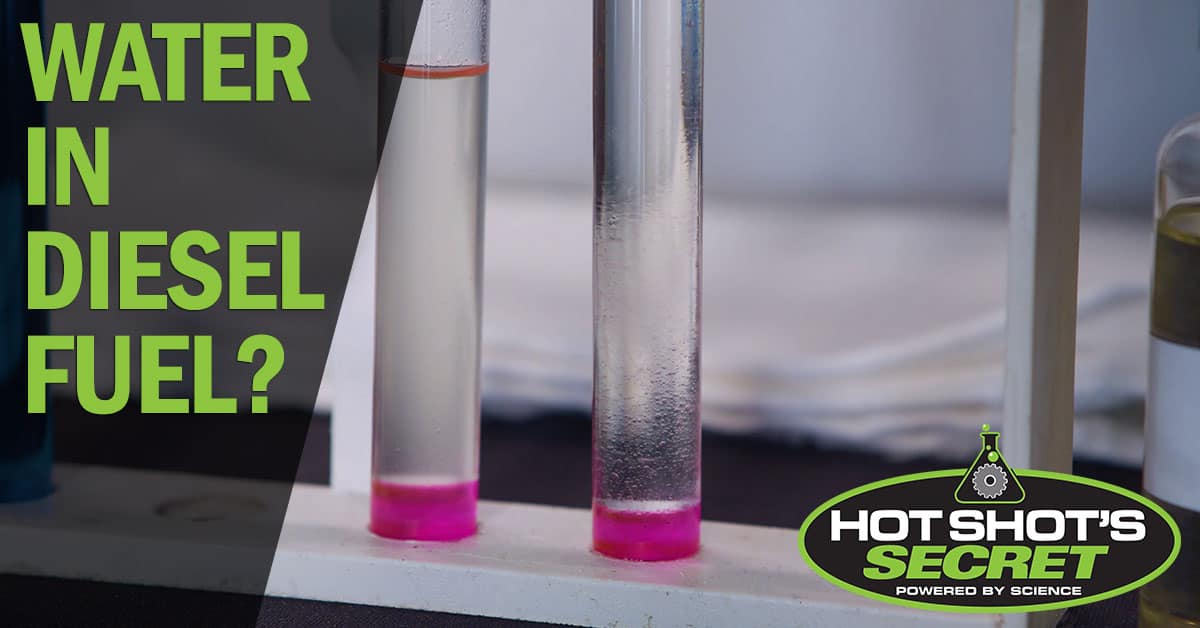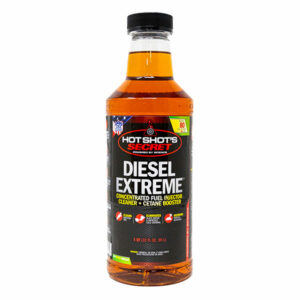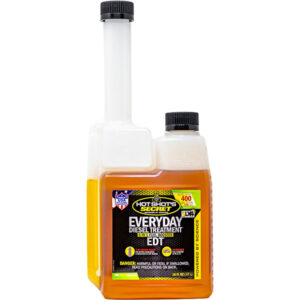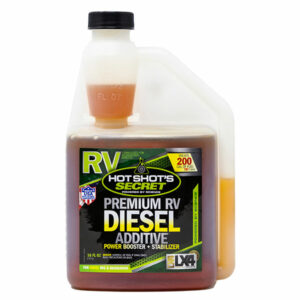
Diesel fuel is mildly hygroscopic, attracting and absorbing moisture from out of the air. Water can also enter the fuel system from poorly maintained storage tanks at diesel fuel retailers. Regularly leaving water in the fuel system can cause numerous issues, including rust and corrosion, icing in winter months and microbial growth.
As an additive manufacturer, we prevent water-related problems by adding a water dispersant to all our diesel-only fuel products. This additive keeps water out of your expensive engine components.
Water contamination of diesel fuel is such a concern that most diesel vehicles are equipped with a water separator in the fuel filter assembly or elsewhere in the fuel system. Some water separators have detection sensors that let the vehicle operator know when to drain the separator. The water separator must be emptied regularly as part of routine diesel engine maintenance and if higher levels of water contamination occur.
How to Know If Water Is in Your Diesel Fuel
Water is common in diesel fuel and can enter the engine through condensation or external environmental factors. Removing any water as soon as possible is necessary because diesel and water do not mix, causing the water to settle at the bottom of the tank. If it remains, your tank can rust and algae can grow, causing damage to the engine and its parts.
If you recognize that your machine or vehicle isn’t working as it used to — such as erratic idling or cutting out while accelerating — your diesel fuel may contain water.
How Does Water Affect Diesel Fuel Quality?
Water getting into your diesel engine for an extended period can wreck fuel quality and lead to more severe problems. The fuel stored in a diesel engine can undergo chemical reactions when exposed to oxygen and water — oxidation and hydrolysis, respectively. These changes can lower fuel quality, sometimes creating gums and sludge that clog the machinery.
Microbes in Diesel Fuel
As we mentioned before, water pooling in the bottom of the engine can recreate rust and algae, leading to microbe growth. Microbes and bacteria can multiply quickly in a dark and moist environment. At this point, the microbes can be problematic to get rid of. Multiplying microbes can bring acids and corrosion that clog filters and can be expensive to eradicate.
Preventing Water in Your Engine: Emulsifier vs. Demulsifier
Two types of water dispersants are available — emulsifier and demulsifier. An emulsifier works to bring the water and fuel into one solution, not separating. A demulsifier separates the water from the base fluid into two liquid bodies.
Using a demulsifier is essential if you need a solution to prevent water from damaging your diesel engine and impacting your fuel quality. If you opt for an emulsifier, the high pressures at the injector tips will turn the water into steam and can explode the end of the injector tip off, costing you hundreds of dollars to replace the injector. Emulsifiers have a place in gasoline applications where they can be extremely helpful, but demulsifiers are best used for diesel engines.
Adding a demulsifier to your fuel before complications occur is a practical and preventive action to keep the water separated for easy removal. Consider these methods to prevent water problems in your engine:
- Check tank regularly: Schedule a time every month to check your diesel tank for water accumulation.
- Keep your tank full: Top off your tank as often as possible to limit humid air accumulation and condensation formation.
How to Remove Water from Diesel Fuel
The more water you have in your engine, the more problems can occur. Before you begin the removal process, test the fuel for water. If only a small amount is present, you can extract it by hand using a bilge pump. Remove the fuel from the tank and let the water settle at the bottom of a clear container.
If there is a more significant amount of water in the tank itself, let your vehicle or machine sit and allow the water to settle. In this situation, a demulsifier can aid in the separation process. You can then remove the water with an extended pump that reaches the tank’s bottom.
Hot Shot’s Secret Has You Covered
Hot Shot’s Secret uses a demulsifier in Diesel Extreme, Everyday Diesel Treatment, Diesel Winter Anti-Gel and Premium RV Diesel Additive. The reason is simple — it is the best for your vehicle. A demulsifier is a higher price chemical, but we want the best for our customers. Once the demulsifier aids in settling the water to the bottom of the mixture, the fuel filter and water separator do their jobs effectively to eliminate the water from the equation. In addition, we add a rust and corrosion inhibitor to keep any water from causing problems down the road.
All of our fully formulated additives are based on science. Therefore we treat all shortfalls of pump diesel, including a cetane booster, injector cleaner, fuel stabilizer, lubricity improver, rust & corrosion inhibitor and water demulsifier in our products. Get the maximum performance out of your diesel while protecting the life of your engine with Hot Shot’s Secret products.



